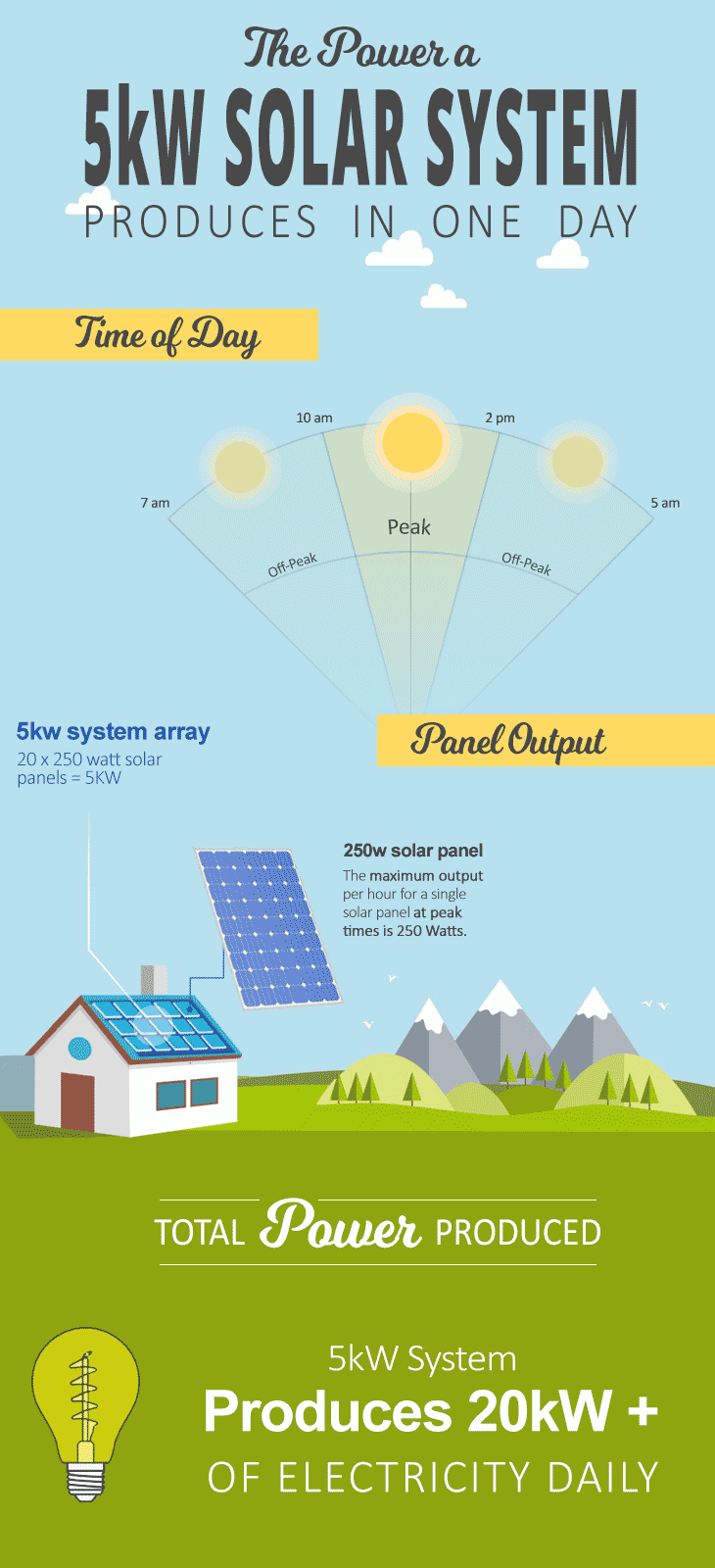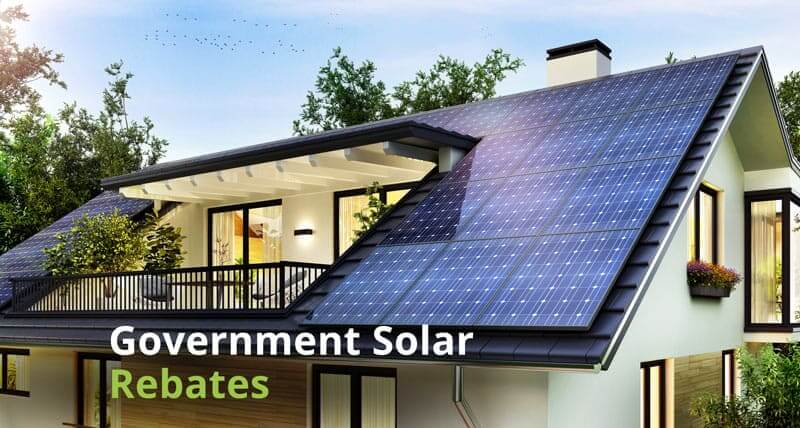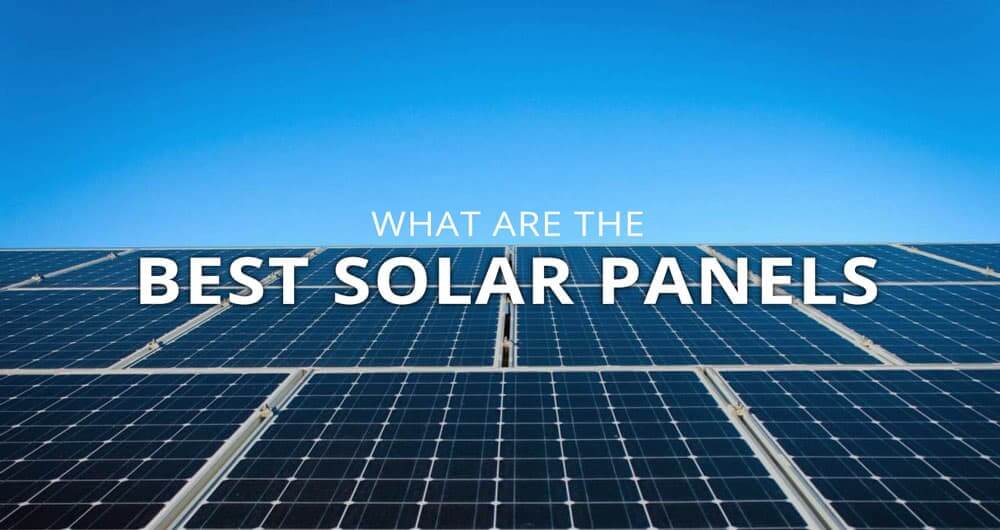Home How Much Power Does A 5kw Solar System Produce Per Day?
Daily Power Produced by 5kW Solar Systems
Once you’ve decided on a 5 kW system, it’s critically important to accurately calculate the amount of power it will produce throughout an entire day.
A 5 kW solar system will produce around 20 kW for an entire day. Most of the power will be generated when the sun is at its peak, between 10 am and 2 pm1. These figures, however, will vary depending on your location and light levels each day.
The sunlight a solar panel array receives also directly affects the power output.
To better understand what a 5 kW solar system will do for your home, let’s delve deeper into it.

Table of Contents
ToggleWhy Is It Called A 5 kW Solar System?
The 5 kW Solar System is an energy-converting tool that converts solar energy into electricity. It comprises 16 solar panels of 1.6 m x 1 m each that can produce 320 W of power to make a total of 5120 W or 5 kWh2 of power per hour of peak output.
What might affect power output?
The more solar panels work together, the more energy they produce. Each panel has solar cells interlinked with wires where the electricity is made.
It is cost-effective because it lowers your electricity bill by 90%3. The savings are estimated at $4.62 per day. This means an annual return on investment of $1900.
However, even with the added advantage, producing such a return depends on factors such as:
• Alignment of the solar panels
• Shadows cast on the panels
• Cloud cover4
• The geographical location
• Operating temperature of the panels etc.
This solar system is ideal for average to large families with at least 1.6. A million homeowners are installing the panels in Australia alone. The average cost of a solar panel system5 ranges from $5000 – $8000. Even though it’s costly, there’s value for money and the assurance of a warranty.
You should never buy a cheap 5 kW Solar System as the power output will not be satisfactory, and you will pay more in the long run. Always get at least 3 quotes from local solar installers6 and avoid nationwide companies. The quotes should differ by only a few hundred dollars. Don’t try to cut corners with installers by getting an $8000 solar system for half the price. It simply won’t work. The cost of installation7 for the 5 kW Solar System varies according to different states.
How much does a 5kW system cost?
The average cost of a 5kW solar panel system8 is $5,655. Even though it’s costly, there’s value for money and the assurance of a warranty.
You should never buy a cheap 5 kW Solar System as the power output will not be satisfactory, and you will pay more in the long run.
Always get at least three quotes9 from local solar installers10 and avoid nationwide companies. The quotes should differ by only a few hundred dollars. Don’t try to cut corners with installers by getting an $8000 solar system for half the price. It simply won’t work.
The cost of installation for the 5 kW Solar System varies according to different states.
What Time of Day Will it Produce the Most Power?
The 5 kW Solar System produces the most power between 8 am – 5 pm, with the peak time being 10 am – 2 pm. This is due to the intensity of light the panels receive when the sun is highest in the sky. This system will produce at least 20 kW of energy every day. This can offset the entire energy usage in a single home.
A 5 kW solar system means the power the system will produce per hour during peak periods11 is 5,000 watts (5 kW).
Some things can affect the output of your 5 kW solar system that has nothing to do with light levels. Even a tiny drop in output per hour can significantly affect the overall output of your system per day and year.
Dirt on the panels can reduce the amount of power produced. Since the panels are placed on the rooftops, they can easily attract dirt, pollen, and other coverings. These block the solar cells from receiving the required sunlight, even at peak hours. Dirt reduces power production by up to 5%.12
No special equipment is required to clean the panels. You can use a hose or a bucket with warm soapy water. Always use a soft sponge to avoid damaging the panels.
To ensure you get maximum power output with a 5 kW Solar System, ensure these two things:
i. Purchase the highest quality solar panels and inverters13. The inverter is an electronic device that changes Direct Current (DC) to Alternating Current (AC), supplied throughout the home.
ii. Ensure the correct location where the panels can receive maximum sunlight14. The solar panel must be fastened securely to your rooftop to avoid slipping or storm damage. They should always face north because that’s where they receive maximum sunlight for regions in the southern hemisphere.
Will solar panels work at night?
Like any other solar panel, the 5 kW Solar System does not work at night2. Solar panels convert sunlight into electricity. Therefore, the absence of sunlight means no energy is being produced at night. The PV (photovoltaic energy15) panels absorb the sunlight, and convert it to DC (Direct Current) and the inverter converts it to AC (Alternating Current). AC is the energy your home uses.
If the solar system produces excess power, it is transferred back to the electricity grid using “net metering”. This surplus energy adds credits to your electricity bill meaning you end up making money. The net metering amount has dropped significantly and you really don’t make a lot of money, but it does help to offset the electricity you use from the grid at night.
The grid connections ensure that you have a constant supply of power even with a fluctuation in energy production.
An alternative to grid connections is to install a solar battery. Also known as going “off-grid” this allows you to store any excess energy your system produces and use it at night after the sun goes down and the solar panels sign dormant until sunrise.
What Appliances Can I Run With A 5 kW Solar System?
There are a number of home appliances you can use with a 5 kW Solar System. It is recommended that you reduce your energy usage at night by using electrical appliances during the day. Using them at peak hours produces the best results due to the high power supply.
Installing power-efficient lighting will also reduce your energy use around the home. Whenever these appliances are not in use, they must be switched off to prevent the wastage of power.
Here are 5 standard appliances16 you can easily use with the electricity produced by a 5 kW Solar System:
| Appliance | Watts per hour | Avg. Hours used daily | Total Watts |
|---|---|---|---|
| Hot water system (100L electric) | 1500 | 3 | 4,500 |
| Microwave | 1500 | 0.3 | 450 |
| Dishwasher | 18 | 1.5 | 2,700 |
| Freezer | 42 | 24 | 1,000 |
| Refrigerator | 35 | 24 | 900 |
| Washing machine | 500 | 0.5 | 250 |
| Clothes Dryer | 4000 | 0.3 | 1,050 |
| Central Air conditioner | 3200 | 2 | 6,400 |
| 2 x LCD televisions | 60 | 5 | 300 |
| 2 x Laptops | 200 | 6 | 1,200 |
| Lights for 4 bedroom home (10 x 7 Watt LED lights [60W equivalent per globe]) | 70 | 6 | 420 |
| Wifi | 6 | 24 | 144 |
| Total | 19,100 |
a. Washing Machine – 800 W (per cycle)
Washing machines can be energy efficient, especially when using solar energy. They are not one of the bigger energy saps on your solar system, but you still need to use them efficiently to make the most of your power. Always put a cold load where possible and only run full loads.
Use the washing machine and dryer during the day when there is a lot of energy production from your solar system. This is done best by setting a timer on your machine, so it comes on during peak energy-producing periods.
b. Hot Water Heaters – 4 kW per day
This is by far one of the biggest drains on your power over any other appliance. Water heating accounts for about 18% of your home’s17 energy use and is the typically the second largest energy expense in any home. As we have become custom to using hot water for anything, the systems we have installed are designed to have hot water on tap (literally) when we need it.
We do pay the price for this luxury, though, as it takes a lot of energy to boil a large amount of water each day for our needs.
The average electric water heater uses a whopping 4 kW19 of power per day or, to put it in perspective, a quarter of all the energy produced by your 5 kW solar system.
c. Oven/ cook top – 2400 W per hour
Ovens like hot water heaters sap quite a bit of energy. Although most households do not use them daily. We will often use the cook top for a maximum of an hour per day, which actually uses less energy than the oven.
d. Television set – 100 W per hour
Your typical plasma television set with a 50-inch screen with no real special energy efficiency will only use about 100 kW20 per hour. Obviously, the larger the screen and the brighter the settings, the more power it will use, but television is a very low-consumption appliance as compared to some of the others.
If you are really looking to excel in the power consumption department, you are the best at switching to a LED television. Like lights, LED screens are a lot more energy-efficient and will only use 30-55 watts21 watts of power per day.
e. Refrigerator 100-200 W per hour (1 kW – 2 kW per day)
There is no escaping this one. We all need to keep our food cold or on ice, and refrigerators run all day, every day. They are not a huge sap of energy if you are running a modern energy-efficient one. The above figures are across the board with fridges no more than 10 years old.
When you get your 5 kW solar system installed you will need to closely monitor how it performs with your various appliances. If you find that your system can not handle the load, you are best looking at your hot water system and fridge for replacement.
I need new appliances”?In most cases, the answer is no. But if you are going to spend that much on reducing the cost of your power bill22, you are running a 15-year-old fridge and a 30-year-old hot water unit. It might be time to replace them also.
f. Air Conditioner 3 kW – 5 kW per hour
Running an air conditioner system on solar power is like trying to swim with lead boots. You are going to be taking on water at some point. Considering that your system only produces 5 kW in peak periods and the air conditioner uses that per hour, you will run into trouble.
Use sparingly, and I would advise only to use during peak periods. The good part about an air conditioner is, that you only really need it on hot days when the sun is high in the sky, so your system will be running at its maximum anyway.
Can I store the energy to use later on?
Yes, you can store solar energy for later use. Not all energy produced by the 5 kW Solar System will be used, especially during peak periods. This is what is called “excess or surplus energy”. The thought of producing all this wonderful green energy during the day when you are at work and not being able to use it, later on, is not a great reality.
Therefore almost all solar systems are designed to have a way of backing up/saving excess energy which is mainly used in the evenings. Solar power technology manufacturers have recently designed solar batteries that store energy for later use. Although these were very expensive when they first came out, their price is coming down rapidly and will be very affordable by 2020 on wards.
The 5 kW Solar System uses its batteries to save energy by converting from DC to AC. How much energy is stored is dependent on the size of the battery. The bigger the size, the more energy will be stored. The size is determined by the amount of power you need to use around the house and the number of days.
Solar batteries23 in the solar system store the excess energy as opposed to returning it to the grid. When the panels produce excess power, it is used to charge the batteries. Energy is returned to the grid once the batteries are fully charged.
These batteries are best used at night when the solar panels are inactive. These solar batteries are an effective backup and can provide energy throughout the home when the sun isn’t shining.
The 5 kW Solar System comes with different types of battery backups for your home. They include:
i. Partial off-grid solar plus storage system: This battery backup designates one grid section of the home to run on solar and battery without using any energy from the power grid. The system runs on electric loads such as the washing machine, refrigerator, television, lights, and AC. They remain “on” even when the power grid is interrupted.
ii. interruptible power supply (IPS): This backup system allows your home to keep running on solar energy even when the power grid is down. So if you were dish washing or doing laundry, you can continue to do so without any interruptions.
iii. Uninterruptible power supply (UPS): This is the most preferred battery backup system because it provides emergency power when the power grid fails. Commonly referred to as “off-grid” you will no longer be relying on the grid for any of your energy needs. It is reliable because of its continual power system.
What Happens To The Energy We Don’t Use?
By now you have seen that the 5 kW Solar System can produce surplus power. Australia estimates that even with the 5 kW Solar System, most homes only require 10 kW24 of energy on average each day.
Since you may not end up using all of it around your home, the excess power is exported back to the grid. The energy is then sold by the power company to other local households for use. You are also paid a little bit of money for the electricity you produced and fed into the grid.
This means other people use the power you don’t need and in turn, your electric bill is lowered. You can sell the surplus energy to the National Grid either through net metering or energy exporting.
Net metering is commonly used as it involves earning the same price per unit to export energy as it does to purchase in the energy. To use this system, however, you need an OFGEM approved export meter making the process long and costly.
Simple energy-exporting is not as common. Surplus energy is transferred back to the grid. You end up getting less per unit compared to the cost of purchase for electricity.
If you want to calculate how much unused energy you have, you can check the net electricity meter. This is referred to as the “feed-in-traffic”.
However, the rates vary from state to state. If the rates are higher, you will make a bigger net return by exporting as much of your solar energy as you can.
Alternatively, you can utilize a solar battery. As discussed above solar batteries are a great way to store excess energy you have produced throughout the day for later use.
This is the ideal option as allows you to use more of your own energy and reduce your power bills essentially to zero us used correctly. Batteries are expensive and this will mean it will take longer for your system to pay for itself25.
- SolarUnion, (2023),Accessed on: 24th March 2024: https://www.solarunion.com/blogs/2023/january/when-are-solar-panels-most-efficient-/#:~:text=Most%20solar%20panels%20reach%20peak,to%20the%20surrounding%20shaded%20areas.
- SOLAIRWORLD, (N.a), How Much Power Does a 5 KW Solar System Produce? Accessed on: 24th March 2024: https://solairworld.com/how-much-power-does-a-5-kw-solar-system-produce/#:~:text=The%20system%20comprises%2016%20solar,during%20the%20peak%20output%20phase.
- Ben McInerney, (2024), Do You Still Get an Electric Bill With Solar Panels? Accessed on 12 May 2024, https://gosolarquotes.com.au/do-you-get-electric-bill-with-solar-panels/
- Ben McInerney , (2024), Do solar panels work on cloudy days? Accessed on 12 May 2024, https://gosolarquotes.com.au/do-solar-panels-work-on-cloudy-days/
- Ben McInerney ,(2024), How Much Do Solar Panels Cost in 2024, Accessed on 12 May 2024, https://gosolarquotes.com.au/do-solar-panels-work-on-cloudy-days/
- Ben McInerney ,(2024), Solar Installers Near Me, Accessed on 12 May 2024, https://gosolarquotes.com.au/solar-installers-near-me/
- Ben McInerney ,(2024), Solar Panel Installation Cost, Accessed on 12 May 2024, https://gosolarquotes.com.au/cost/solar-panel-installation/
- Ben McInerney ,(2024), 5kw Solar System Cost Guide, Accessed on 12 May 2024, https://gosolarquotes.com.au/cost/5kw-solar-system/
- Ben McInerney ,(2024), HOW MUCH DO SOLAR PANELS COST?, Accessed on 12 May 2024, https://gosolarquotes.com.au/
- Ben McInerney ,(2024), When is The Best Time to Use Solar Electricity? Accessed on 12 May 2024, https://gosolarquotes.com.au/
- Amalyah Hart, (2023), Dirty panels are cutting output from solar PV by up to five per cent, Accessed on: 24th March 2024: https://reneweconomy.com.au/dirty-panels-are-cutting-output-from-solar-pv-by-up-to-five-per-cent/#:~:text=A%20new%20report%20from%20the,3%20to%205%20per%20cent.
- Ben McInerney ,(2024), Best Solar Inverters 2024, Accessed on 12 May 2024, https://gosolarquotes.com.au/solar-inverter/
- Bidhan Bhuson Roy , (2024), Amount of Solar Energy Hitting Earth Every Second, Day, Week & Year, Accessed on 12 May 2024, https://gosolarquotes.com.au/amount-of-solar-energy-hitting-earth/
- Ben McInerney , (2024) , Is a Solar Cell and a Photovoltaic Cell the Same?, Accessed on 12 May 2024, https://gosolarquotes.com.au/is-a-solar-cell-and-a-photovoltaic-cell-the-same/
- Solaire, (N.a), Top 7 Applainces that Solar Energy can power, Accessed on: 24th March 2024: https://www.solaireconnect.com.au/blog/top-7-appliances-that-solar-energy-can-power/
- Energy.Gov, (2024), Water Heating. Accessed on: 24th March 2024: https://www.energy.gov/energysaver/water-heating
- AOSmith, (2024), Product Support: Electric Tankless 208V / 4 kW Point-of-Use Water Heater RPVA-40X, Accessed on: 24th March 2024: https://www.hotwater.com/support/electric-tankless-point-of-use-proline/rpva-40x-100/100299795.html
- Ben McInerney, (2024) , 100kW Commercial Solar System Cost. Accessed on 12 May 2024, https://gosolarquotes.com.au/commercial-solar/100kw-commercial-solar-system-cost/
- Jackery, (2023), How Many Watts Does a TV Use: 24, 32, 65 Inches TV And More [With Data Table], Accessed on 12 May 2024, https://www.jackery.com/blogs/knowledge/how-many-watts-does-a-tv-use
- Ben McInerney, (2024) , Get an Electric Bill With Solar Panels?, Accessed on 12 May 2024, https://gosolarquotes.com.au/do-you-get-electric-bill-with-solar-panels/
- Ben McInerney, (2024) , much do solar batteries cost? Accessed on 12 May 2024, https://gosolarquotes.com.au/cost/how-much-do-solar-batteries-cost/
- Ben McInerney, (2024) , 10kW Solar System Price – Complete 2024 Guide, Accessed on 12 May 2024, https://gosolarquotes.com.au/cost/10kw-solar-system/
- Ben McInerney, (2024) ,Solar Panel Payback Period, Accessed on 12 May 2024, https://gosolarquotes.com.au/solar-payback-period/
Table of Contents
Toggle




